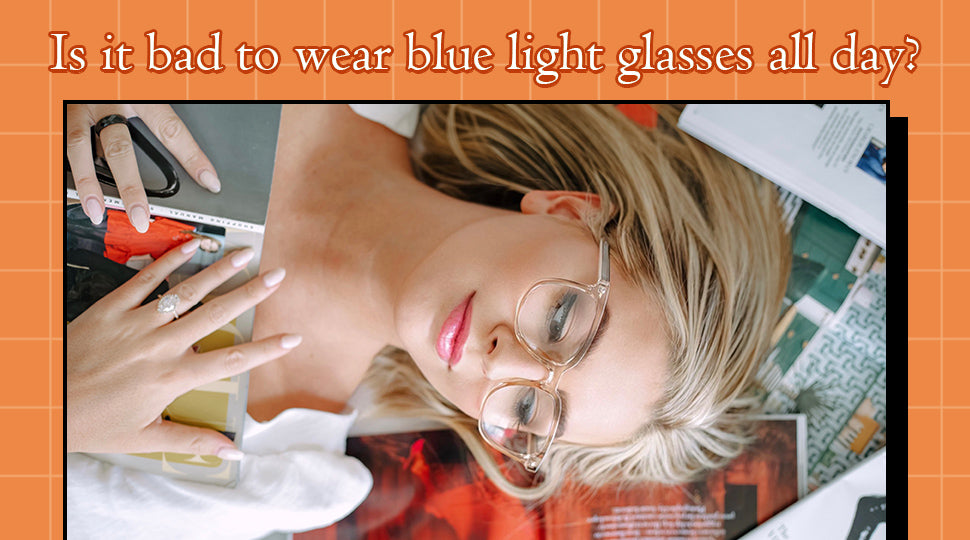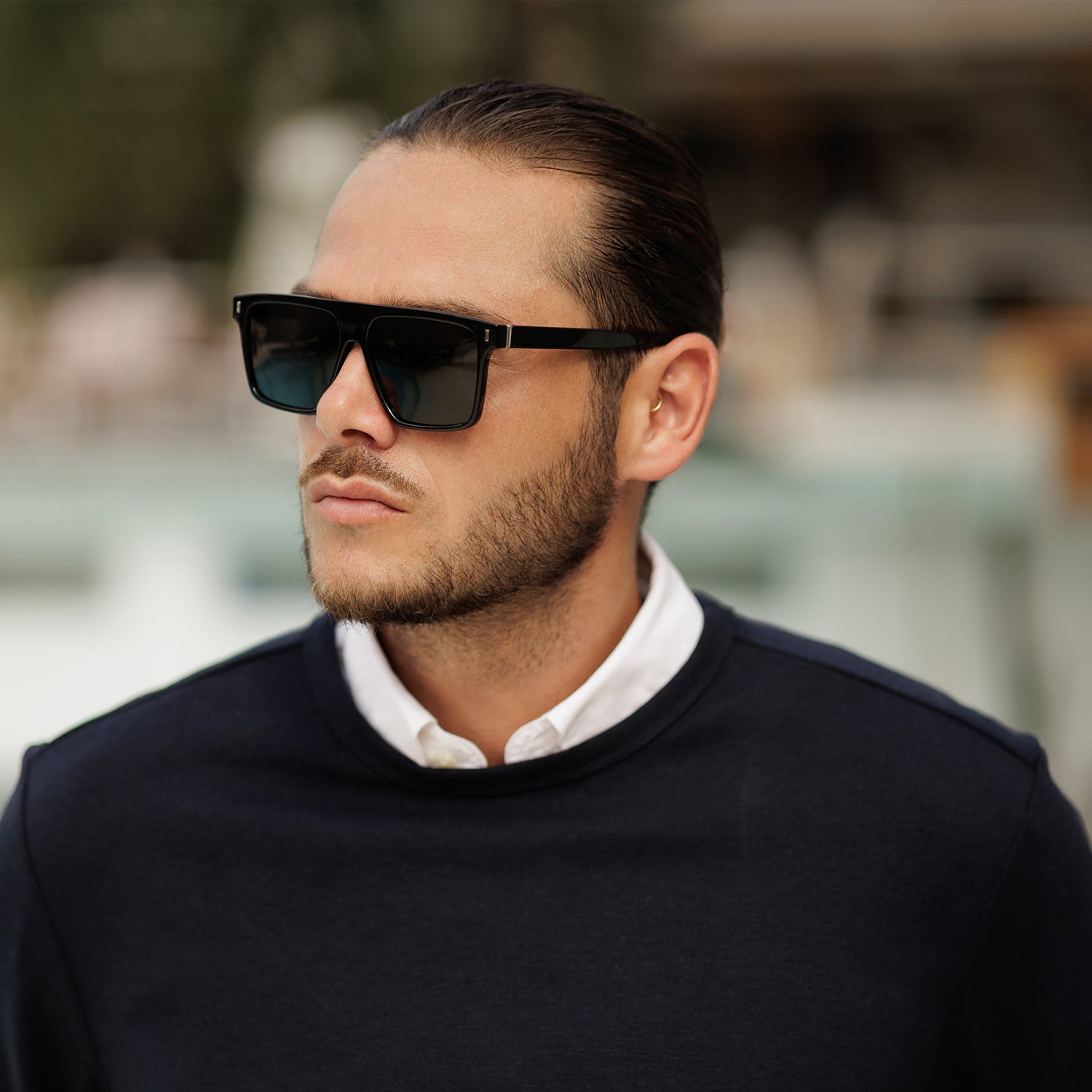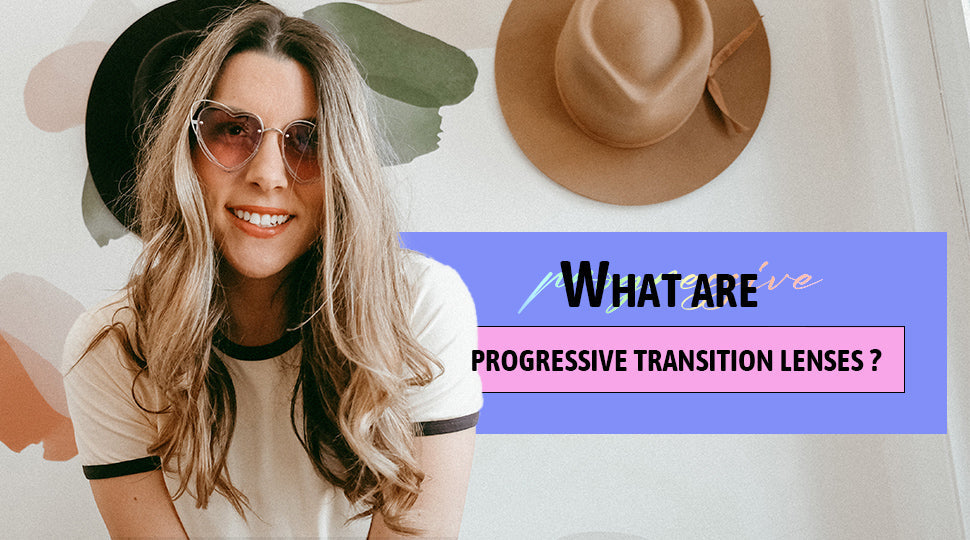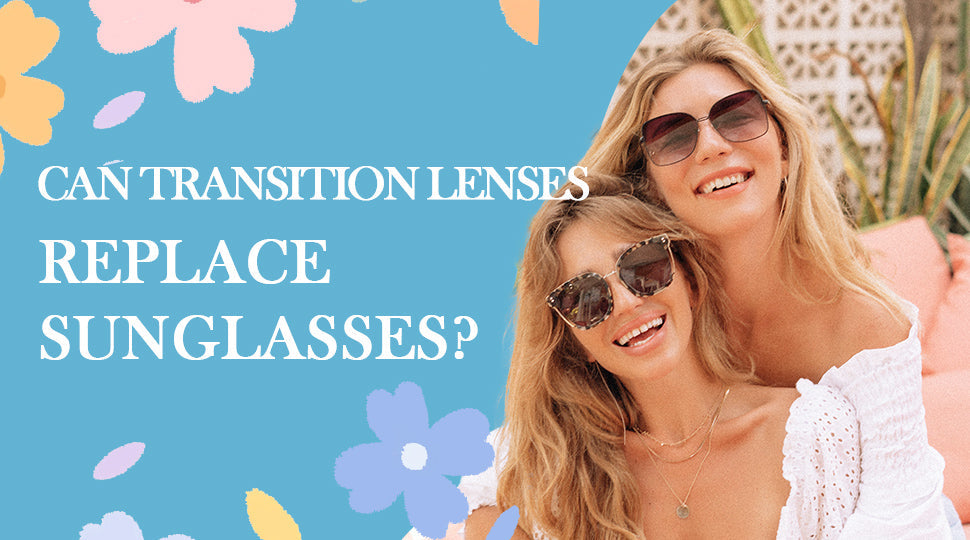
Is it Bad to Wear Blue Light Glasses All Day?
While the internet has brought a plethora of benefits to us, it has also enabled digital devices to be in front of us all the time. And that’s bad news! Many of us spend 70% of our day staring at these screens – be it LED TVs, cellphones, tablets, etc. When we are outside, we get exposed to the harmful ultra-violet rays and Blue Light radiating from the sun.
You may continue to enjoy infotainment from digital devices at your home and office. Also, get the vitamin D or tan your body from the sun’s rays. Unfortunately, if you have not protected your eyes, this overexposure could lead to some serious harm to your vision.
Eventually, you may end up with Age-related Macular Degeneration (AMD), nearsightedness, cataract, retinal degenerative diseases, focusing issues, or even cancer and much more.
That’s definitely not what you asked for, right?
So, let’s understand what is this Blue Light, how to prevent it, and the best ways to remain protected yet enjoy all the goodies the world gives.
- · What is Blue Light?
- · How Does Blue Light Affect your Vision?
- · How Do Blue Light Glasses Work?
- · Are Blue Light Glasses Necessary?
- · Are There Any Risks to Wearing Blue Light Glasses All Day?
What is Blue Light?
You may know the rainbow colors – Violet, Indigo, Blue, Green, Yellow, Orange, and Red – (aka VIBGYOR). If you spin all these colors, you get white color. That’s how the sunlight appears to be; it’s the combination of all these seven colors. Each color has its specific wavelength and energy level.
Blue, in the color spectrum, our subject in this article, has the shortest wavelength but higher energy than other colors. Did you know some of the Blue Light during daytime is beneficial because it boosts attention, reaction time, and mood? But not if continuously exposed for a longer duration.
It is harmful in a relatively darker environment, say evening or nighttime. That makes Blue Light the hero and the villain in our lives. We need it but should be kept in control and at a safe distance to avoid harmful effects.
As per some research, Blue Light (also known as HEV or High Energy Visibility) has a wavelength between 415 and 455 nanometers. The Blue Light that LED emits from your favorite devices is between 400 and 490 nanometers. Imagine the damage it does to the naked eyes if you stared at the digital screens throughout the day.
How Does Blue Light Affect your Health?
The sun is the primary source of blue light exposure on earth, although digital devices like those on LED TVs, cellphones, tablets, computers, and e-readers also produce artificial blue light.

Continuously staring at digital screens exposes you to harmful Blue Light rays causing eyestrain and headaches. The Blue Light exposure would further increase in the evening when you continue to use these digital devices along with other illuminations from lighting products.
“People talk about blue light and sleep because it does affect both our alertness during the day and sleepiness at night”, explains Colleen Carney, PhD, an associate professor and director of the Sleep and Depression Laboratory at Ryerson University in Toronto.
Blue Light affecting your retinas, known as phototoxicity, can cause serious damage. In one research, exposure to Blue Light at night for as little as two hours reduced or prevented the release of melatonin, the sleep hormone.
Light disrupts the body's biological clock—the circadian rhythm—at night. The Blue Light emitted by electronic devices impairs your sleep cycle. This could adversely affect your productivity the next day.
How Do Blue Light Glasses Work?
Our complex lifestyle compels us to use these electronic devices throughout the day and at night, too. The only way to protect your eyes is to use glasses with a Blue Light filter. Also known as blue blockers, it effectively eliminates or minimizes the rays of Blue Light hitting your retina.
A yellowish coating on the lens is supposed to neutralize the Blue Light emitted by digital screens. It lowers the intensity of hazardous Blue Light that enters your retina. While preventing any potential damage to the eyes it helps in improving the general mood and quality of sleep.
The reason for such a positive effect is that the filtered glasses block the Blue Light, resulting in reduced eye strain.
A blue filter is usually applied to prescription glasses. But it is also applied to sunglasses and comes in several variants like photochromic, polarized, and tinted.
Are Blue Light Glasses Necessary?
Poor vision or vision impairment is something that many of us experience at some point in our life. For this, we use prescription glasses for vision correction and improved readability. Although these glasses do the job of overcoming our internal inadequacies, the additional challenge we face is external factors.
We cannot avoid the use of electronic devices in our daily lives.
The Blue Light emitted from these devices poses a serious threat not just to our vision but to our overall health. The more we neglect today, the more health complications we would have later. As it’s said, prevention is better than cure, it is prudent to protect your eyes from Blue Light, before it is too late.
The special quoting on the lens will always act as a protective shield against harmful Blue Light. The soothing effect of the blue blockers will help you focus on your work more efficiently rather than suffer from eyestrain, discomfort, and headaches. Wearing Blue Light glasses is necessary for a healthy life and better productivity.
Are There Any Risks to Wearing Blue Light Glasses All Day?
Can you imagine a place where you may not be exposed to Blue Light? You always carry your cellphone and frequently check your messages or browse. At your workplace, you have your PC or laptop shooting the Blue Light at you. And at home, you are watching movies on your large LED TV screen.
So, there is no place you can escape from this Blue Light unless you consciously stop any of these digital devices. But for how long can you take a sabbatical break? Life would come to a standstill without these gizmos.
Don’t worry, you can and should wear Blue Light glasses all day long. It does not have any negative effects. It is safe to use it for as long as you want. In fact, you need to safeguard your eyes from sunlight and artificial sources of Blue Light at all times.
A healthier approach to preventing Blue Light from attacking you is by being mindful of your vision. Here are some tips to help you protect yourself yet enjoy the benefits of your digital devices by making some simple changes to your lifestyle:
Reduce Screen Time:
Limit your screen time whenever and wherever possible. This will minimize your exposure to Blue Light and lessen the need to wear the glasses. If you wear them, be sure to take breaks throughout the day to give your eyes some relaxation.
Get Natural Light:
Sunlight may be harsh but it is the best source of Vitamin D. Its intake in adequate quantity and at the right time of the day is essential and can improve your internal clock.

Replace Harmful Source of Light:
As technology advances, we are introduced to more capable and energy-efficient products. If you are still using fluorescent lamps, it is high time to replace them with LED. They take lesser power, illuminate more, and display a soothing ambiance.
Night Mode:
Digital devices are software driven and provide a night mode feature in their user interface. This would pose less strain to your eyes. Turning off your digital devices at least three hours before going to bed will help a peaceful sleep.
Conclusion
Wearing Blue Light glasses all day can help reduce eye strain from staring at screens, but no definitive studies are proving their effectiveness. There are also no known risks to wearing them, so if you find them helpful, there's no harm in using them. Blue Light glasses can be a helpful tool for reducing eyestrain and fatigue, but they may not be necessary for everyone.






